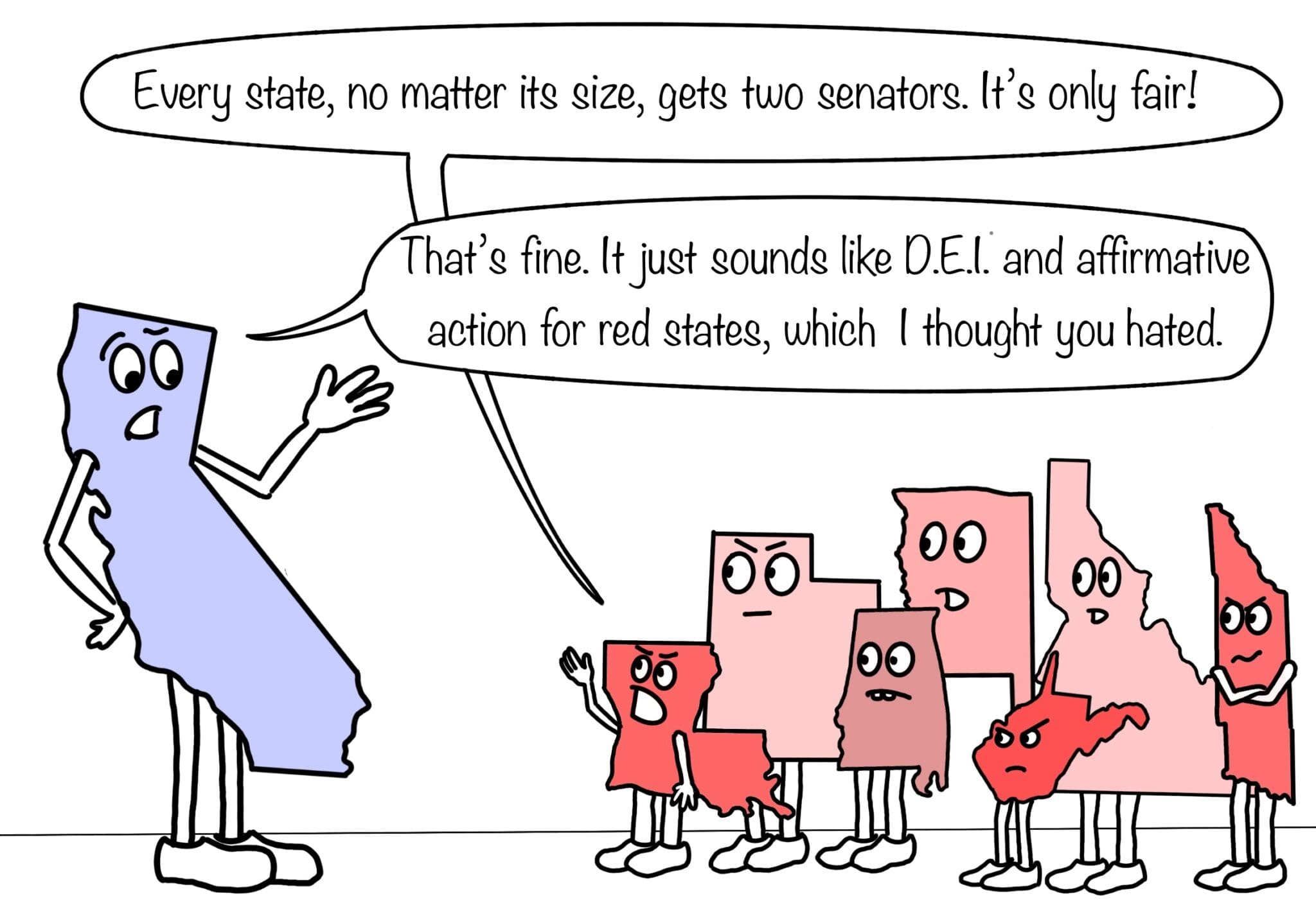
The Electoral College is D.E.I. for Red States
The United States remains the only modern democracy that still uses an electoral college to elect its president—a system that many see as an outdated relic. Most people are familiar with its major criticisms: the candidate who wins the popular vote isn’t guaranteed to become president, and the system disproportionately empowers less populous rural states, often to the benefit of Republicans. Moreover, the Electoral College strips ordinary citizens of their direct voting power, placing the final decision in the hands of 538 electors, many of whom the average voter has never heard of. And while it’s assumed these electors will reflect their state’s popular vote, they are not legally bound to do so in several states.
Proponents of the Electoral College argue that it protects the interests of rural areas, ensuring candidates don’t solely focus on urban centers with larger populations. They also claim that diversity of opinion is crucial in a representative democracy. The Electoral College, they say, ensures that all regions—rural, urban, and everything in between—have a voice in choosing the nation’s leader. The system supposedly fosters “equity” by amplifying the influence of smaller, often Republican-leaning states, preventing the majority from drowning out the minority.
But let’s be honest: the Electoral College isn’t a merit-based system, nor does it reflect a one-person, one-vote democracy. It’s a distorted mechanism that benefits certain groups at the expense of others. In fact, it’s strikingly similar to affirmative action—only this time, for red states. Think about it: the Electoral College could be seen as a form of “equity” in the way the term is used in Diversity, Equity, and Inclusion (DEI) initiatives. Yet, it’s ironic that many conservatives, especially those in red states, are some of the loudest critics of affirmative action and DEI programs.
So, if diversity, equity, and inclusion are deemed so important in selecting our president, why are they not just as valuable when it comes to corporate boards, employee recruitment, or university admissions? Republicans have long decried these DEI initiatives, often framing them as unfair and discriminatory. In fact, during his presidency, Donald Trump issued an executive order that banned diversity training within federal government agencies and among contractors.
This brings us to a glaring contradiction: Republicans, who rail against DEI in most contexts, are perfectly fine with a version of it when it benefits their electoral prospects. It’s a clear case of rhetorical hypocrisy. When DEI serves their needs—as the Electoral College clearly does—it becomes more palatable. But when it challenges their dominance in other areas, it’s dismissed as unjust or unnecessary.
In the end, the facts speak for themselves. The Electoral College, much like DEI, is about balancing competing interests. But what’s telling is how the concept of equity is embraced in one case and rejected in another, depending on whose interests are being served.